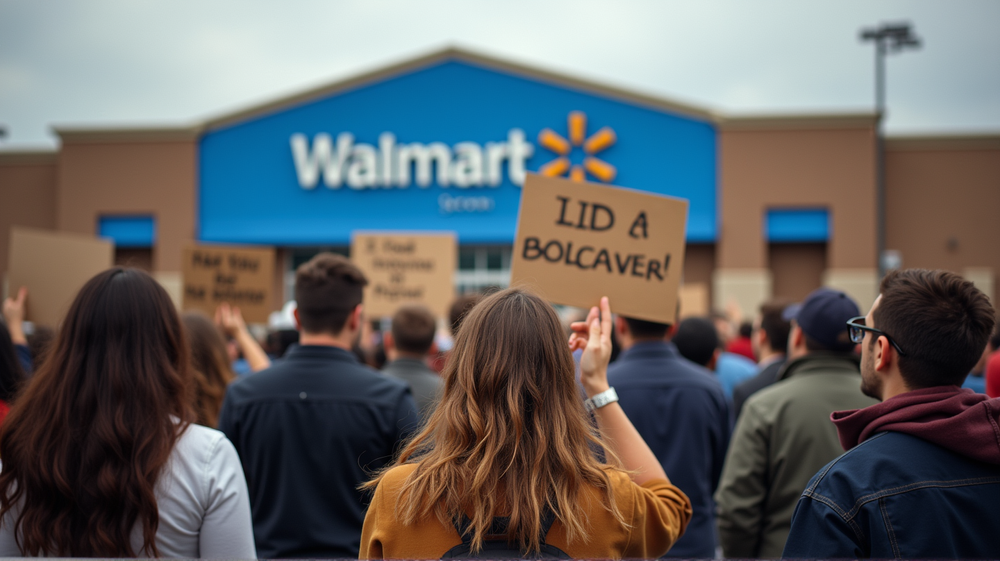Walmart Faces Nationwide Boycott Amid $25 Billion Loss: What You Need to Know
An Unprecedented Consumer Movement
Walmart, one of the world’s largest retailers, is facing a nationwide boycott organized by the People’s Union USA. Scheduled to take place from April 7 to April 14, this bold move echoes previous consumer-driven protests aimed at challenging corporate practices surrounding diversity, equity, and inclusion. As stated in Hindustan Times, the boycott reflects a growing trend of activism targeting corporations and their practices.
The People’s Union USA: A United Stand
The People’s Union USA distinguishes itself not as a political entity but as a movement of the people. In their mission statement, they emphasize the importance of reclaiming control over the economy, government, and future. Their previous campaigns against major corporations such as Nestlé and Amazon set the stage for this landmark attempt to influence change at Walmart.
Impact on Walmart and Beyond
The boycott isn’t just about avoiding purchases from Walmart retail stores. It extends to online platforms, private label brands, health services, and even subscription services. The organization aims to send a powerful message to Walmart and other corporations about the consequences of perceived corporate greed and political corruption.
In February, a similar 24-hour economic blackout organized by the People’s Union USA led to significant impacts across the retail sector. While Walmart saw a 5% decrease in site traffic, such patterns underscore the potential power consumers wield when taking organized action.
Walmart’s Financial Concerns
Compounding the pressure, Walmart recently reported a staggering $22 billion valuation loss. This financial blow, attributed in part to declining consumer trust and economic uncertainty, underscores the fragile state of the retail giant. Walmart CEO Doug McMillon warned of possible adverse effects on the retail industry if consumer confidence continues to wane.
A Call for Local Support
In response to the boycott, the People’s Union USA is encouraging consumers to seek local alternatives before resorting to Walmart or other large retailers. Their message is clear: support local businesses whenever possible, and participate in the stand against the perceived monopolistic practices of major corporations.
Voices from the Public
Public reaction to the boycott is varied, with some individuals finding new appreciation for local shopping and others grappling with the challenge of foregoing major retailers. Social media is abuzz with discussions on how these economic blackouts could reshape consumer behavior and corporate strategies in the long term.
As the April boycott approaches, many are watching closely to see how these efforts will impact both Walmart and the broader retail industry. With a focus on collective consumer action, this movement signals a potential shift in the relationship between businesses and their customers.




